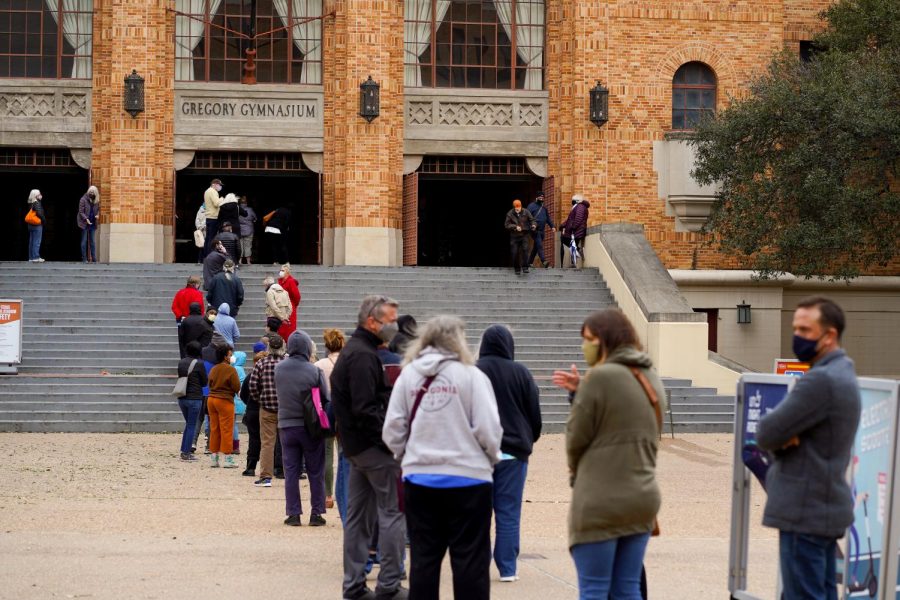UT Health Austin, Austin Public Health vaccine completion rates remain higher than national average
May 5, 2021
As the White House reports more people across the country are skipping their second dose vaccine appointments, UT Health Austin continues to see high rates of full vaccinations, a UT Health Austin spokesperson said.
About 8% of individuals are skipping their second dose appointment in the United States, Dr. Anthony Fauci said in a White House press briefing last week. That number has increased from 3.4% during the early months of the vaccination rollout, according to a previous report from the Centers for Disease Control and Prevention. About less than 1% of individuals vaccinated by UT Health Austin skipped their second dose appointments, Jonathan Robb, director of the Office of Emergency Preparedness, said in an email.
The fully vaccinated rate is likely so high because UT Health Austin schedules second dose appointments when people arrive for their first dose, Robb said.
About 5% of people in the Austin Public Health vaccination system are beyond the 28 days recommended to schedule their second dose of the Moderna vaccine, Matt Lara, a spokesperson for Austin Public Health, said in an email. However, Lara said the number may include people who received their second dose from a different provider and never updated their account with Austin Public Health.
The New England Journal of Medicine reported there is still confusion among the public about how effective first and second doses are in the U.S. According to the report, 20% of respondents believed they were strongly protected before their second dose, while 36% were unsure. In Latinx and Black communities surveyed, 45% of respondents were unsure. A history of unethical medical research, malpractice and abuse have made Black and Latino communities distrustful of medical care.
Second doses provide a significant boost in protection against COVID-19 compared to the first dose, said Terrance Hines, the executive director and chief medical officer of University Health Services. Hines said the second dose is important in achieving herd immunity and preventing more variants from developing.
“So long as COVID exists in the community, it is able to then have mutations and develop new variants,” Hines said.
The CDC recommends individuals get their second dose as close to the three- or four-week interval as possible but notes that if necessary, people can still receive it within six weeks, or 42 days, of their first dose. Hines said that even beyond the 42-day window, people should return for their second dose because it will still provide better protection than a single dose.
“What has been proven pretty consistently is that one dose is good, but two is better,” Hines said.



